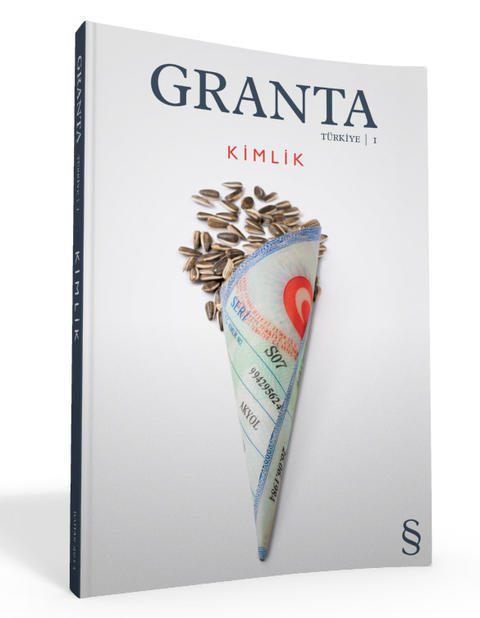
This coming week will see the launch of the first issue of Turkish Granta, themed Identity, just in time for the London Book Fair, which will have Turkey as its Market Focus for 2013. The issue is composed half of translations from the archive of the English language edition – including Salman Rushdie, Martin Amis and Urvashi Butalia – and half of new work by Turkish writers. Here, online editor Ted Hodgkinson spoke to editor of Granta Turkiye, Berrak Gocer, about the strong showing of women writers in the issue, why Turkish identity is particularly complex and cosmopolitan and why the LBF matters for Turkish writers.
TH: How did you first discover the magazine?
BG: I came upon Granta when I was an undergraduate living in New York towards the end of 2000’s. It was also around that time that I discovered the Cabinet magazine, so it was a very enriching time for me, culturally.
You’ve had pieces by Martin Amis and Salman Rushdie from our archive translated for this issue. As we near the launch of Best of Young British Novelists 4, how much did that first in the series, which featured them both, put those writers on the map in Turkey?
That sort of direct and immediate response to international literary developments has become stronger here in the last decade or so. But of course, the more an author was featured and mentioned in prestigious magazines such as Granta, the more prominent he/she became in Turkey also. I could also add that Salman Rushdie has always been a topic of discussion with the infamous commotion surrounding The Satanic Verses. I’m sorry to say that only two Martin Amis titles are currently available in Turkish; we are hoping that the first issue of Granta Turkey will introduce him to a wider readership.
There are some very strong pieces by female authors – Urvashi Butalia, V.V. Ganeshananthan, Tahmima Anam – in this issue. Was that a conscious decision or did you realise afterwards that they were all by women?
I hadn’t actually realized that; but now that you mention it, our Turkish pieces include a lot of female authors as well. As you can tell, this was not a conscious decision, but perhaps we felt that women had a stronger voice, or just something more fresh to say when it came to the topic of Identity.
Do the pieces by Turkish authors in the issue reflect a shared idea of Turkish identity? Or do they disrupt the possibility of having only one viewpoint?
Again, your question helped me realize how different the concept of ‘identity’ is in Turkey. It is such a complex and dynamic issue. Leaving roles such as being a parent, an employee, a woman, a senior citizen etc. aside, when we talk about ethnic identity here, it is not that of a Turk, but rather that of all the Kurds, Armenians, Rûms, Circassians, Turks and other ethnic groups that live on this land that is today called the Republic of Turkey. I believe we have captured this cosmopolitanism rather well in our first issue. The writings, when they came together, made it very clear that there will always be a new approach to the issue of identity.
What do you hope will come from Turkey being the focus of the London Book Fair this year?
Half of the titles published in Turkey each year are translations – so Turkish publishers always had a working relationship with foreign agencies and publishers. But that relationship has taken another dimension, again in the last decade or so, with the rise of literary agencies and with publishing houses becoming more eager to see their authors published internationally. Turkish works, especially literary ones are today being published in a variety of languages. I think Turkey being the market focus of the LBF this year will enhance, and hopefully speed up that development.
What is the theme of the next Turkish Granta?
We will decide upon our next theme right after the London Book Fair, but currently we are toying around with the relation between authority and poverty – so it will be something along those lines. ■
via Interview: Turkish Granta | New Writing | Granta Magazine.


